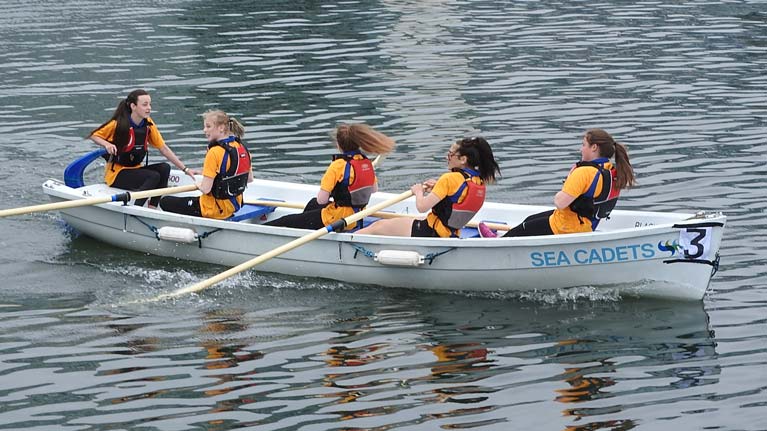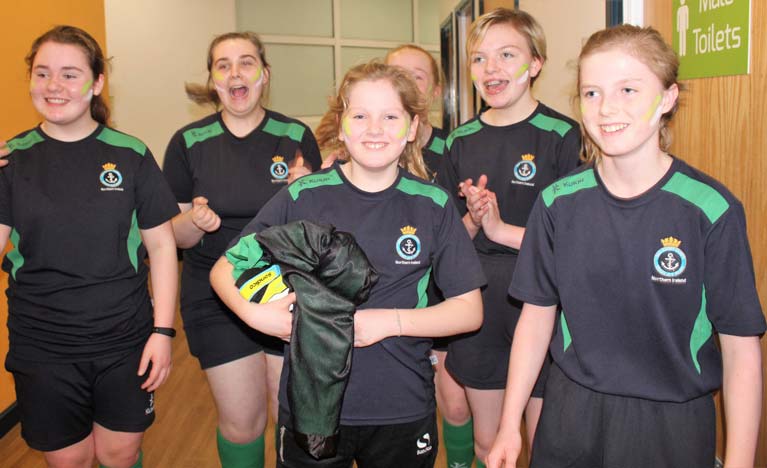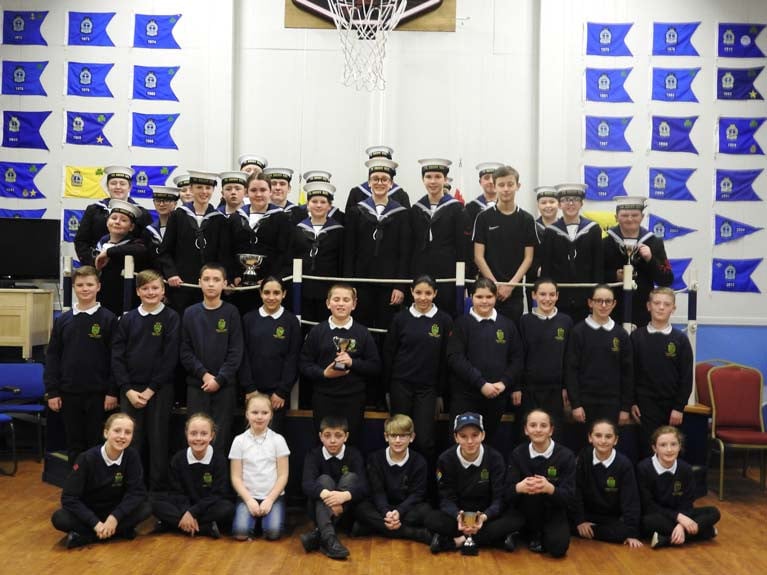Displaying items by tag: sea cadets
Sea Cadet Corps Celebrates 80th Anniversary in Northern Ireland
The Sea Cadet Corps celebrated its 80th anniversary in Northern Ireland waters through a special parade and event in Carrickfergus, County Antrim, attended by dignitaries and special guests, including the Admiral of the Sea Cadets Corps, HRH Princess Royal.
Dressed in full military uniform, Princess Royal performed the inspection of the Royal Guard. She also addressed the cadets and volunteers present, in which she talked about the rich history of Sea Cadets in Northern Ireland, from the fledgling units that her grandfather, King George VI, met on his visit to Belfast in June 1942 to the polished and professional displays of today.
The Princess Royal praised Sea Cadets volunteers who give up their time to instil the essential qualities of self-discipline and respect, while granting unique opportunities for fun and adventure. She told the volunteers they are providing a great service to the people of Northern Ireland; producing fine young cadets who will fulfil their potential and serve their communities, and their country, with distinction.
 Dressed in full military uniform, Princess Royal performed the inspection of the Royal Guard of the Sea Cadets Corps at Carrickfergus
Dressed in full military uniform, Princess Royal performed the inspection of the Royal Guard of the Sea Cadets Corps at Carrickfergus
The event was attended by the Lord-Lieutenant of County Antrim, Mr David McCorkell, the High Sheriff of County Antrim, Mr John Lockett OBE, Deputy Mayor of Mid and East Antrim, Councillor Beth Adger, Brigadier James Senior Commander 38 (Irish) Brigade, as well as dignitaries and senior ranking uniformed guests from across Northern Ireland. Over 200 cadets took part in the parade, held indoors due to inclement weather.
The Lord-Lieutenant’s Cadet for the City of Belfast, Able Cadet Sargent, spoke at the event, telling the crowds about how she joined Sea Cadets as a child because of her passion for water-based activities.
“[My unit] has provided me with a lifetime of memories, and numerous skills to equip me for adult life,” she said.
There are 12 Sea Cadets units in Northern Ireland, which give more than 220 cadets the opportunity to learn rowing, sailing, paddlesports, powerboating and much more – helping them to develop into resilient, confident young people who can launch well into life, whatever their background.
Great Adventures for Bangor Sea Cadets on Belfast Lough
Among the craft in Bangor Marina on Belfast Lough who have made it their home since it opened thirty years ago, are the rowing boats belonging to the Bangor Sea Cadet Unit, T S Decoy. Their shore base is an ex-Scout hall in Ward Park in the town. The unit’s sailing dinghies are kept at the Outdoor Centre at Killyleagh and the paddleboards at their HQ. Officer in Charge is Philip Atwell.
The Bangor unit has a great record in local and national competition. It prides itself on winning last year, the Sea Cadet burgee with Shamrock as best overall unit in Northern Ireland, and the Amaryllis Trophy for the best sporting unit in the region.
 Bangor Sea Cadets Junior girls rowing team winning at the District Regatta
Bangor Sea Cadets Junior girls rowing team winning at the District Regatta
Skilled rowing is high on the trophy list with the under 15 girls’ team winning bronze in London at the national finals. And the unit’s football teams excel also, the under- 15 girls having competed in 5 a-side football, winning Gold in the district competition and bronze in the national competition.
Three of the District team boys took silver. And the junior section cadets (10 - 12-year olds) won bronze in the same competition. A force to be reckoned with.
The 58 strong group, about half of which are girls, is one of several in the region with a total of 380 cadets. The others are Carrickfergus, Larne, Portrush, Belfast (where there are two), Lisburn, Newtownards, Kilkeel, Ballymena, Cookstown and a planned one in Enniskillen.
 Bangor Sea Cadets Girls at a national football competition
Bangor Sea Cadets Girls at a national football competition
The Sea Cadets are a national charity with 400 units across the UK. T S Decoy welcomes “young people to a different kind of adventure. We're helping to launch local young people for life today, transforming them into confident, resilient young people who thrive in a complex world.
Northern Ireland Sea Cadets Pay Tribute to Atlantic Sailors
#battleoftheatlantic – Sea Cadets from across Northern Ireland have been playing a role in the commemorations to mark the 70th anniversary of the Battle of The Atlantic
The Cadets were on duty at the formal unveiling recently at Ebrington Square in Londonderry of a replica of the famous Mariner sculpture statue in Halifax, Nova Scotia in Canada of a sailor carrying his hammock on his right shoulder and kit bag in his left hand. There is no naval insignia, as the statue is intended to reflect the contribution of the seamen from the many Allied nations which protected the shipping convoys during the war. Originally created by the distinguished Canadian sculptor, Peter Bustin, the replica statue was cast at the Tanat Foundry, Oswestry. The inlaid inscription on the granite base of the statue reads, 'In memory of those from all nations who lost their lives in The Battle of Atlantic. And, in lasting tribute to the part played by the citizens of this city in the longest battle of the second World War 1939 – 1944.'
At the height of the raging sea conflict, Londonderry was host to up to 20,000 Royal Navy personnel, 10,000 Canadian and Newfoundlanders, more than 6,000 US personnel as well as many from the German occupied nations.































































